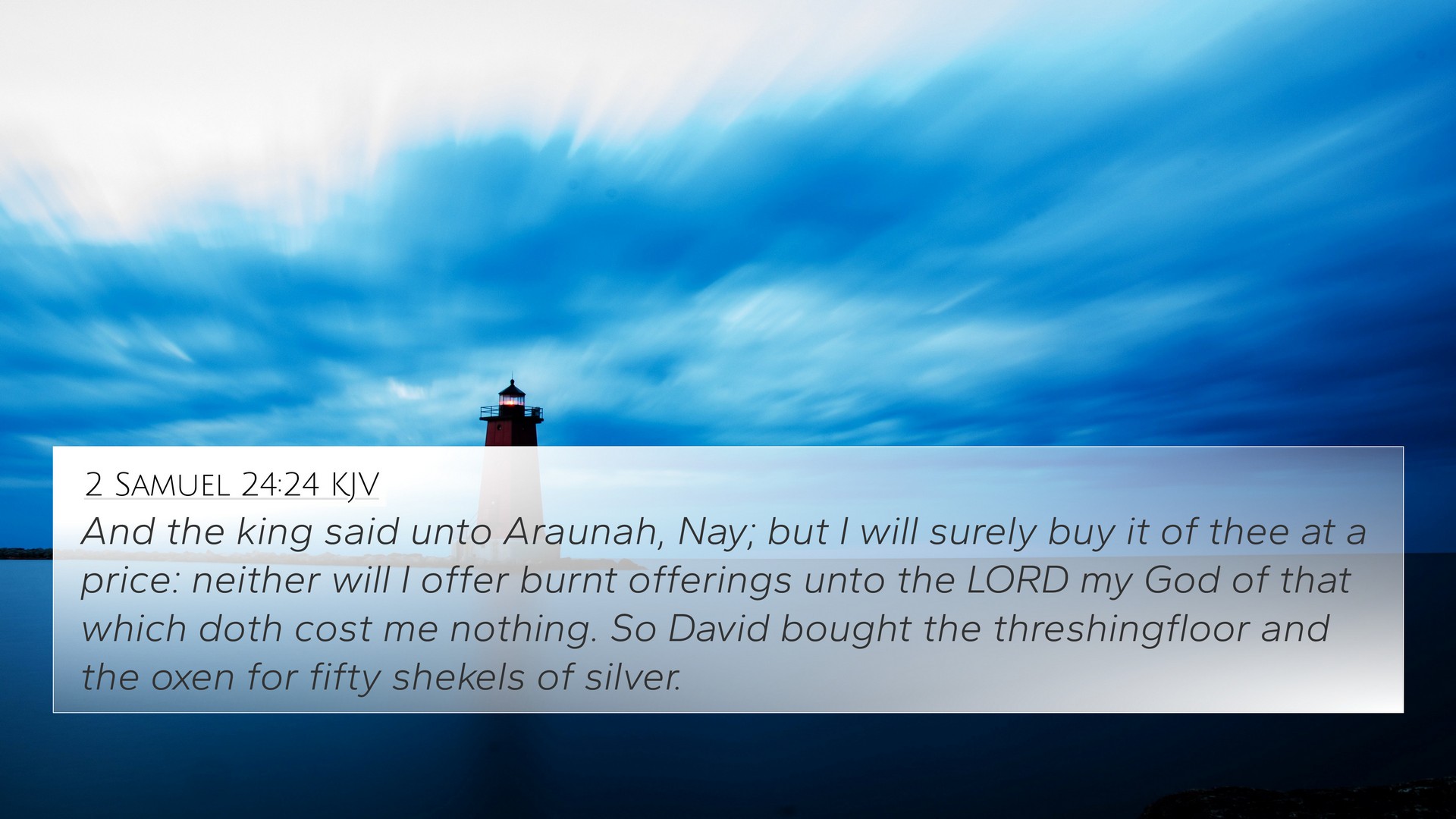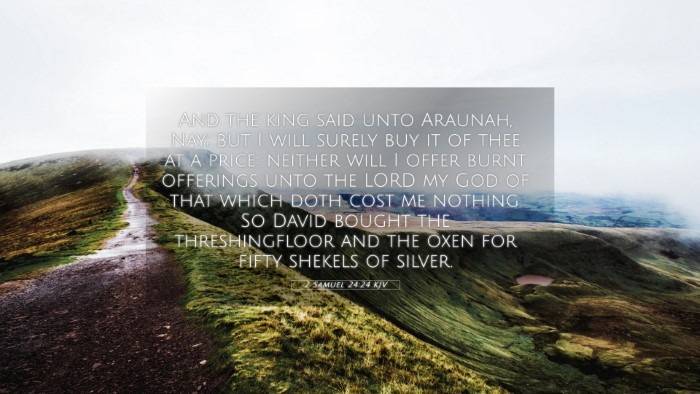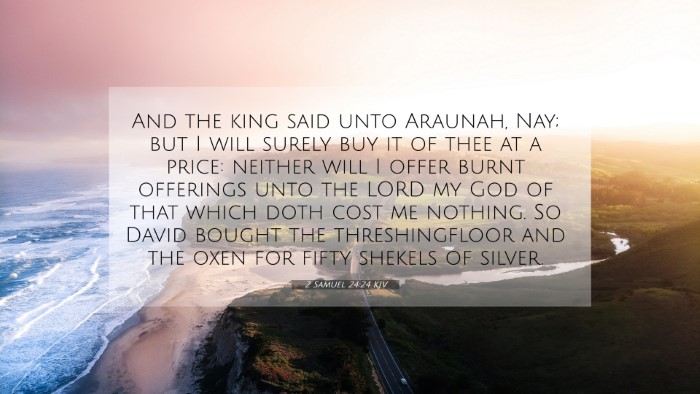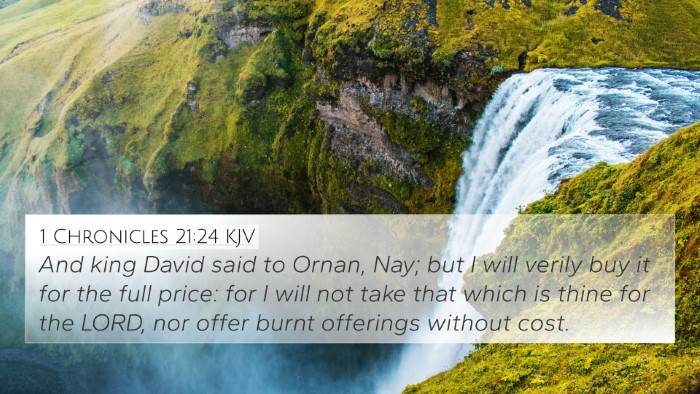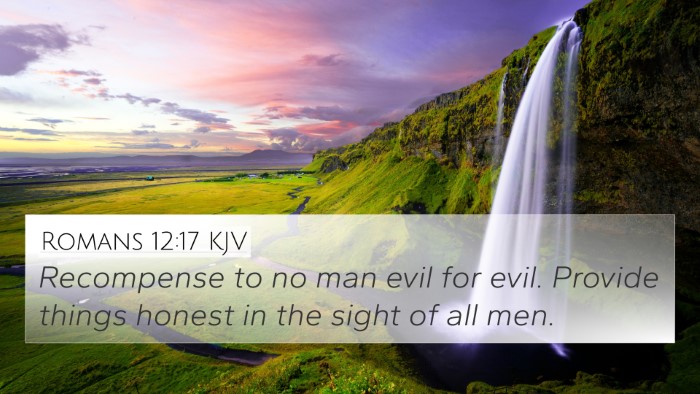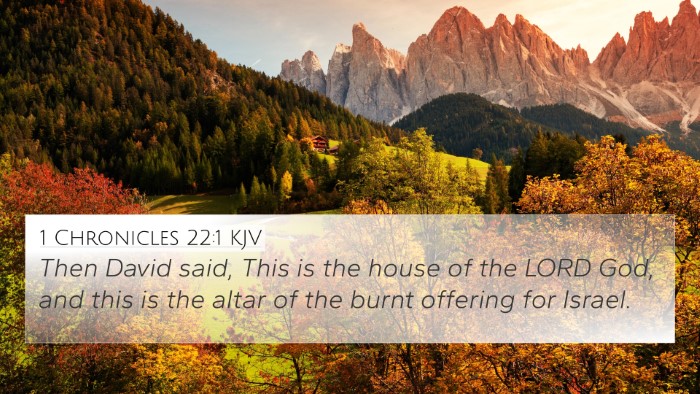Understanding 2 Samuel 24:24
2 Samuel 24:24 states: "But the king said to Araunah, 'No, but I will surely buy it from you for a price; nor will I offer burnt offerings to the Lord my God with that which costs me nothing.' So David bought the threshing floor and the oxen for fifty shekels of silver."
Summary of the Verse
This verse captures a significant moment in the life of King David, emphasizing the importance of sacrificial giving to God. David refuses to accept the land for free, insisting that his offerings must come at a cost, reflecting a principle of genuine worship and devotion to God.
Commentary Insights
Drawing from the insights of public domain commentaries such as those by Matthew Henry, Albert Barnes, and Adam Clarke, we can deepen our understanding of this passage.
-
Matthew Henry's Commentary: Henry emphasizes that David's insistence on paying for the offering reflects his desire to honor God genuinely. He points out that true worship must involve sacrifice and that offerings given without cost do not please God.
-
Albert Barnes' Notes: Barnes notes that this verse illustrates David's acknowledgment of the need for personal sacrifice in worship. He underlines that David's actions serve as a model for all believers, highlighting how worship should involve a personal investment.
-
Adam Clarke's Commentary: Clarke sheds light on the historical context, explaining that Araunah, the Jebusite, offered the site for free, yet David's response shows his commitment to not offer to God what costs him nothing. This act signifies a profound understanding of the relationship between sacrifice and divine favor.
Thematic Connections
The theme of sacrificial giving is prevalent throughout the Bible, and 2 Samuel 24:24 connects to various scriptures that reinforce this principle:
- Genesis 22:2: The command to Abraham to offer Isaac illustrates the depth of sacrificial obedience.
- 1 Chronicles 21:24: This parallel account reaffirms David's commitment to paying the full price for the altar.
- Malachi 1:14: It emphasizes the expectation of offerings from the heart and not merely for appearances.
- Luke 21:1-4: The widow’s offering serves as an example of sacrificial giving, where the heart behind the gift is valued more than the amount.
- Romans 12:1: Paul urges believers to present themselves as living sacrifices, echoing the spirit of David’s offering.
- Philippians 4:18: Paul mentions his received gifts as fragrant offerings, further connecting to the idea of sacrificial giving to God.
- Hebrews 13:16: Encourages sharing and offering sacrifices of praise, reminding believers of continuous giving.
Cross-Referencing Biblical Texts
This verse is an excellent example for those interested in cross-referencing Biblical texts. Known tools for Bible cross-referencing can help identify deeper meanings in Scripture and the connections between different verses.
How to Use Bible Cross-References
Engaging in cross-reference Bible study allows believers to explore thematic Bible verse connections. Here’s how one might use this practice:
-
Understand linking Bible scriptures by identifying keywords or phrases that appear in both the verse of interest and related passages.
-
Utilize a Bible concordance or a Bible cross-reference guide to facilitate the discovery of inter-Biblical dialogue.
-
Take note of Bible verses that relate to each other, such as 2 Samuel 24:24 and the other mentioned passages, to draw parallels and gain insights.
Conclusion
In interpreting 2 Samuel 24:24, the overall message encourages us to consider our own giving to God. The idea that worship and offerings require personal sacrifice remains a powerful theme in both the Old and New Testaments. Reflecting on how we may apply this in our lives deepens our spiritual journey and connection to God.
As you explore comparative Bible verse analysis, keep the connections between diverse passages in mind. This not only enriches your understanding but also highlights the comprehensive nature of Scripture and its ability to communicate timeless truths.
